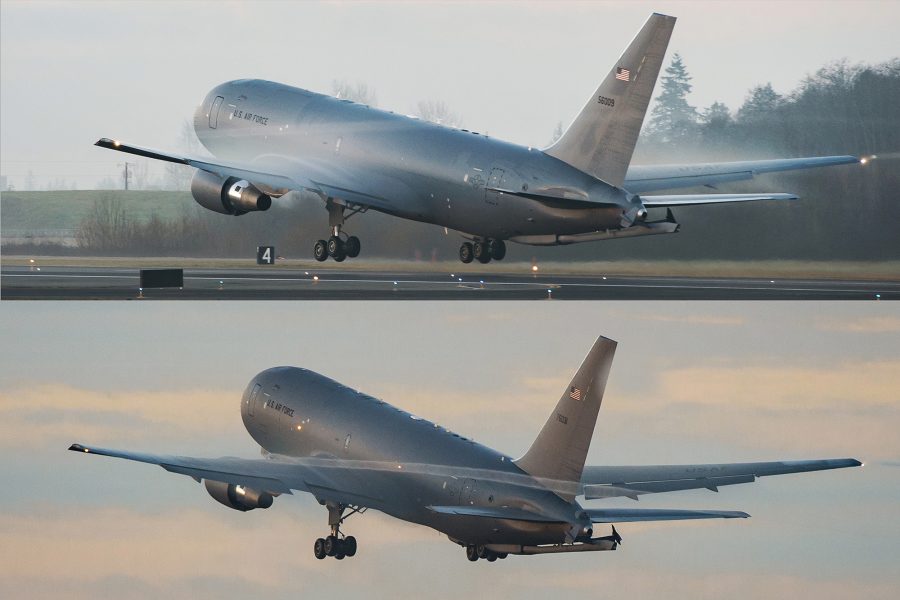Air Force acquisition programs remain largely on course, despite major disruptions from the new coronavirus outbreak, such as Boeing halting production at its Puget Sound-area facilities in Washington state, the service’s acquisition boss said.
The outbreak has posed “unprecedented” challenges to the service and how it is procuring weapons, but so far, there have only “been minor issues” and all programs are largely sticking to schedules, said Will Roper, the Air Force’s assistant secretary for acquisition, technology, and logistics.
The biggest challenge so far has been Boeing’s decision to halt production at its Everett facility, which makes the KC-46; Boeing Field in Seattle, where the tankers have left for deliveries to the service; and the Renton facility that makes the Navy’s P-8.
The Air Force was notified in advance of the decision after several Boeing employees tested positive for the COVID-19 virus. The buildings will be closed for two weeks for a deep cleaning. So far, “with the stand down, we’re only a little concerned,” said Roper, who noted the company has made it clear it is a priority to get back to building the aircraft.
As it stands, there is no large impact to the delivery schedule for this year. However, if the stand down lasts over a month, “it will affect all deliveries,” and “that will have an impact,” though there’s no reason for now to believe that will happen, he said.
While production has stopped, the company and the Air Force are continuing work on the tanker’s Remote Vision System issue, he said. RVS is supposed to let Airmen see where the plane’s refueling boom is in relation to an aircraft it is trying to gas up, but a lack of focus has sometimes caused the operator to hit the nearby plane.
Other programs are in good shape, Roper said. For example, the Air Force still expects to award the Ground Based Strategic Deterrent and space launch awards later this year. Flight testing is largely continuing, with some hiccups. F-35 tests stopped earlier this week at Edwards Air Force Base, Calif., though Roper said he’s not tracking major impacts.
Programs that can do testing virtually are on track, but those that require in-person work and real-world flying are starting to slow as aircrews need to practice social distancing and stagger shifts. Coming out of the crisis, Roper said, “this is an opportunity to think about how to do things differently.” This shows a need for greater digitization and virtualization in the test world, he said.
As the outbreak continues to spread and more workplaces are impacted, the Air Force and the Defense Department have been working directly with governors so they understand that military production is essential and those workers should stay on the job even if a shelter in place order is given. The Air Force expects the companies to make the work conditions as safe as possible to keep as many workers on the job as possible.
To help with this, “the government has to do its part to keep the industry open and working,” Roper said. This is especially true for small businesses that need cash flow from the government to keep them going, as opposed to major corporations that could more easily weather the storm. An example of how the Air Force has done this is with this month’s AFWERX virtual pitch bowl event, which was originally to be held as part of the canceled SXSW event in Austin, Texas. During this event, the service and small businesses signed about 600 contracts, worth almost $1 billion.
This is “critical cash to small companies. We’re fortunate the event occurred when it did,” Roper said.
The Air Force is also changing how it is working within the program offices to improve cash flow to industry, including how it processes payments, lowering withholding for deficiencies, and telling contracting officers to award contracts earlier when possible, he said.
The service’s acquisition office is postured for a war with the virus, with the aim to move more quickly. The past several weeks have been a “radical disruption thrust upon” the military, but Roper said he expects USAF to “come out the other side much more agile and adaptive to deal with an uncertain world.”
